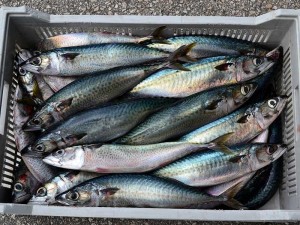More than half of the citizens want to pull out of the candidacy; among the “thorny” issues: fish and the CAP
The Committee of the Regions visits the capital to promote the path to European adhesion

Iceland holds back and is distancing itself from the EU. The last Gallup poll indicates that, contrary to the initial enthusiasm, now that they are out of deep water from the crisis and national finances seem settled, the 320,000 citizens of the tiny state don’t welcome the idea of entering and participating in the EU. According to the latest survey, almost 6 out of 10 interviewed would like the candidacy to be removed. Truthfully, Iceland, which is a part of the European Economic Area (EEA), an area of free trade with the EU, has never had great European ambition, given that they approached the EU only in 2009 after the explosive financial earthquake that shook the island up and pushed the Icelander Prime Minister, Jóhanna Sigurðardóttir, elected on the wave of protest against the old center-left government, to choose adhering to the EU and adopting the single monetary unit because it was considered “the best option” for the country.
The situation is very serious: in mid January Iceland had already suspended the negotiations on adhering to the electoral campaign and now is waiting for the results of the parliamentary elections on April 27th to decide whether or not to proceed on the route to community. For the moment the conservative party (the one that brought the country into ruin) now opposes joining Europe and according to surveys is in a clear-cut advantage regarding the center-left government. All the work done by the social democrat Prime Minister Johanna Sigurðardóttir is therefore at risk of being thrown out. And it was a huge task because there are many prickly issues with Brussels. Particularly the Reykjavik government encountered many complications in reaching an agreement on the Common Agricultural Policy (CAP) and on the percentage of fish – the principle economic sector in Iceland – especially for mackerel.
In the meantime the work to prepare for the eventual membership goes forward. The representatives of the Committee of the Regions of the EU met the Icelander authorities in Reykjavik to take stock on the adhesion process to the EU. Foremost they discussed pre-adhesion European funds and the need for Iceland to increase the capability of assimilating as well as future implementation of structural funds on a local level. The objective of the Joint Consultative Committee meeting – the panel directed at favoring the political dialogue between representatives of the European institutions and the local ones of the country who asked to enter and be part of the EU was also to “investigate.” During their visit the CoR wanted to verify the role of the local authorities in the course of adhesion and ascertain if– we learn from a communiqué – “the Icelander cities are really keen to take forward the procedure to enter the EU at all costs.” On this issue the words of Jón Gnarr, Mayor of Reykjavik, seem encouraging; he pointed out that it’s the role of the districts to be central in strengthening the democratic debate with future European citizens: “The Icelanders must actively be involved in the decisional process that will bring us to join the EU and take part in it,” he affirmed.
The co-President of JCC and Vice-President of the CoR, Mercedes Bresso made it clear that: “Our goal is to work together in the process of negotiating, guaranteeing that the issues raised by the regional and local authorities are adequately considered in the dialogue between the three parties. I am convinced that only in this way can we ensure that the citizens and their representatives as well as the European member states make at a well-thought decision at the end of negotiations.”
Loredana Recchia


![Una donna controlla le informazioni sul cibo specificate sulla confezione [foto: archivio]](https://www.eunews.it/wp-content/uploads/2014/12/Etichette-alimentari.jpg)


![Ragazza in biblioteca. Nell'Ue chi studia non lavora e neppure cerca. In Italia funziona ancor più così [foto: Tulane University, Wikimedia Commons]](https://www.eunews.it/wp-content/uploads/2024/11/Girl_in_the_Library_3638661587-350x250.jpg)



